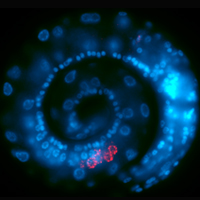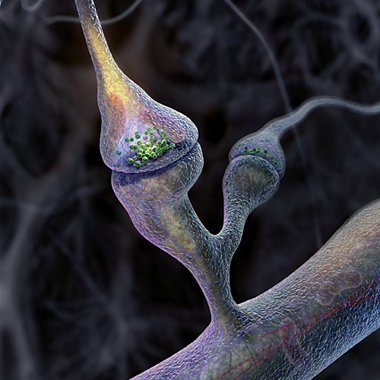Our Graduate Programs
Cellular, Molecular, and Microbial Biology (CMMB)
Reflecting the breadth of biology, the Cellular, Molecular, and Microbial Biology (CMMB) Program at the University of Montana, houses a vibrant group of faculty working on timely problems, using a variety of approaches and model organisms. The mission of CMMB is to advance basic and translational research as well as to provide excellent training for our graduate students in a thriving collaborative environment. CMMB students earn M.S. or Ph.D. degrees in one of four focal areas: Cellular and Developmental Biology, Microbial Evolution and Ecology, Microbiology and Immunology, or Molecular Biology and Biochemistry.

Ecology and Evolution (EE)
With world-class faculty and unparalleled access to the intact ecosystems of the Northern Rockies, Ecology and Evolution (EE) is an ideal place to explore the processes that create biological diversity and shape its distribution across landscapes. The hallmark of EE is integration, both as a community of researchers with shared interests and in individual research programs that cut across scales from molecules to ecosystems. EE offers M.S. and Ph.D. degrees in the field of Ecology and Evolution.

Neuroscience
It is difficult to imagine a scientific field of study with greater breadth, relevance or opportunity than Neuroscience. At the University of Montana, Neuroscience is a campus-wide interdisciplinary program dedicated to educating students and advancing research on the brain, behavior and diseases of the nervous system.
At the core of our graduate degree program in Neuroscience is a comprehensive, interdisciplinary, and research-focused understanding of the nervous system, our graduates are exceptionally well prepared for the next steps in their career paths, be it medical school, graduate school, postdoctoral research, or any of the other exciting neuroscience-related opportunities rapidly emerging in the academic and private sectors.
The strong emphasis on research that runs throughout the Neuroscience program reflects the interests and successes of the program faculty as nationally recognized neuroscientists, most of whom are supported by grants from the National Institutes of Health (NIH) and the National Science Foundation (NSF). Many of these faculty are affiliated with one or more of the neuroscience-related centers on campus, including the Center for Structural & Functional Neuroscience and the Neural Injury Center. This very strong research presence keeps the content of the neuroscience courses current, and provides numerous opportunities for students to get hands-on research experience.

